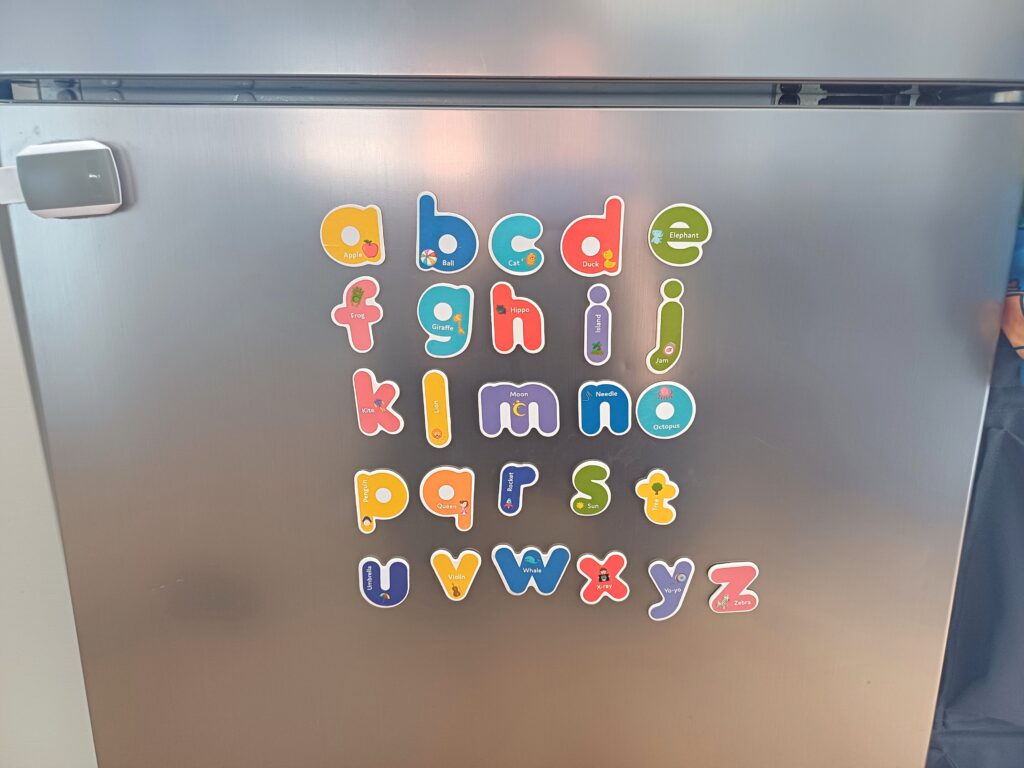What are Phonics?

Phonics are the sounds that letters make, and is a method to help children learn to read and spell words.
‘Formal’ teaching of phonics takes place in schools and is made up of different phases which children learn when they are ready. Each school may use a different programme, but essentially the sounds children learn are the same.
The ‘informal’ learning of phonics usually takes place at home and in a childcare setting. Children will learn sounds by hearing them and saying them in their everyday routines and play.

Why are Phonics important?
It is the basic skill to be able to read words, knowing the individual sounds of the letters, and using them to blend together to make a word.
For example, sounds S, A and T when said slowly together than more quickly, gives you the word ‘sat’. A set of sounds such as S, A, T, I, P, N, can make all kinds of words such as ‘it’, ‘is’, ‘tin’, ‘nap’ etc.
Knowing sounds, and that sounds represent something, will help your child with starting to put meanings behind the text.

Top tips:
- Letters in the environment: point out sounds in the environment to your child – for example, signs with the letters that are significant to them, such as the first letter of their name
- Sharing books: when sharing books with your child, start pointing to the words along the sentence so they can start seeing the connection between what you are saying and the words
- Hunt for the letter: allow your child to play with magnetic/plastic/jelly/foam letters to allow them to be surrounded by the letters – you can hide them in sand, water or mud and see what your child can find
- Alphabet puzzles: this is a fun way to see the letters, and some puzzles such as inset puzzles allow you to feel the outline/shape of the letter – some have a picture with the corresponding letter so you can talk about it with your child
- Photographs: photos of family members with their names, including a photo of your child with their name, helps them become familiar with what their name looks like
- Singing rhymes: singing nursery rhymes and looking at rhyming books are a great way to immerse your child in a range of sounds, repeating words and noises, so they can start to play with words and sounds
- Writing for meaning: as your child gets older, they will start to hear the first or last sound in the word that you may be saying, for example M in the word ‘milk’ – before you go food shopping, you can write a simple short shopping list to model to your child how you write the words and exaggerating the sounds as you spell them (this may also make them want to write their own list!)
